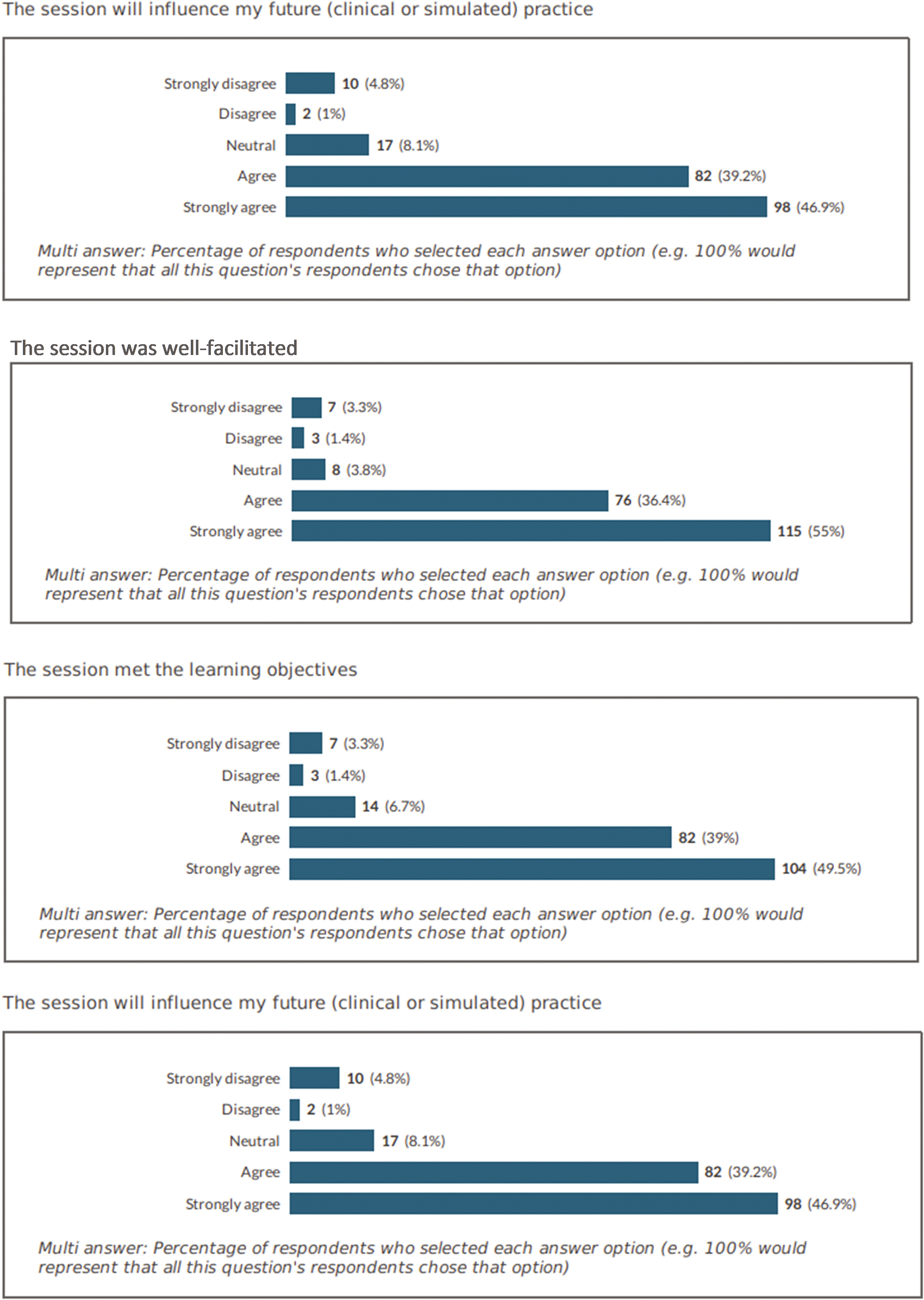
A level 5 (year 2) interprofessional falls simulation was developed for undergraduate healthcare students in Cardiff University to increase opportunities for interprofessional simulation across undergraduate, pre-registration healthcare programmes. Interprofessional simulation improves team performance and communication skills [1]. Falls are a major public health problem globally with older people at highest risk of serious injury or death and younger children being another high-risk group [2]. Falls was identified as a common curricular component for all healthcare professions. The aim is to present the evaluation findings from the launch of the interprofessional falls simulation.
A one hour falls simulation scenario was designed which included a facilitator and student guide by an interprofessional working group consisting of champions from healthcare professions of the targeted learners. Staff training was delivered to support facilitation and debriefing skills. Sessions were co-facilitated and debriefed by two facilitators from different professions. An online JISC student evaluation survey was developed incorporating the SPICE-R tool [3] for IPE and to gain qualitative feedback. A separate online evaluation form was created and completed by facilitators post session.
The falls scenario was successfully implemented and evaluated across seven undergraduate programmes between September-November 2023. Of the 306 students that attended, n= 210 (69%) completed the evaluation survey. Ninety percent agreed/strongly agreed the session was relevant to their practice and enhanced their future ability to work on an interprofessional team and 86%-91% that it was useful, well facilitated, met the learning objectives and will influence their future practice (see Figure 1-A42). Student feedback regarding what was most useful included; ‘practicing a real-life scenario and getting feedback’ and understanding ‘how to work as a team with other health care professionals when fall occurs’ and ‘what each role does’. The least useful aspect was the duration; ‘having it only for 1 hour’. Facilitator feedback was also positive; ‘It was a good IPE for staff too!’ and ‘good to work with another member of staff from a different profession as we each had valuable insights we could add’.


Students benefitted from this experience and enjoyed working with other health professionals. Importantly, it introduced students to interprofessional team working in a simulated environment pre-registration. The session will be lengthened in response to the evaluation feedback. Facilitators felt the co-debrief was valuable in role modelling interprofessional working. In conclusion, it was a successful first run of this simulation for healthcare students.
Authors confirm that all relevant ethical standards for research conduct and dissemination have been met. The submitting author confirms that relevant ethical approval was granted, if applicable.
1. Blackmore A, Kasfiki EV, Purva M. Simulation-based education to improve communication skills: a systematic review of the past decade. Human Resource Health. 2020;18(1):2.
2. World Health Organisation (WHO). Falls, World Health Organisation, Falls (who.int). 2021. [Accessed 16 April 24].
3. Zorek JA, MacLaughlin EJ, Fike DS, MacLaughlin AA, Samiuddin M, Young RB. Measuring changes in perception using the student perceptions of physician-pharmacist interprofessional clinical education (SPICE) instrument, BMC Medical Education. 2014;14:101.